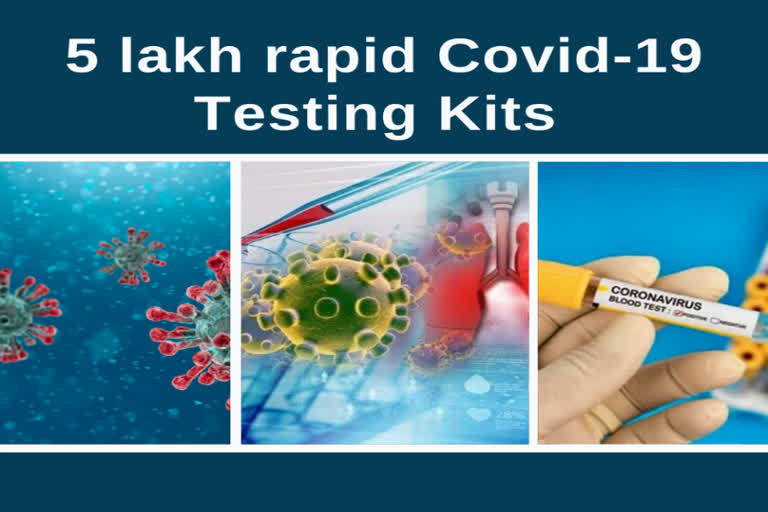India has received the much-awaited five lakh rapid COVID-19 testing kits from China and these are not meant for an early diagnosis of the disease rather for monitoring whether coronavirus hotspots in India are increasing or showing a declining trend, the government said.
Addressing a daily briefing on COVID-19 situation in the country, chief of Epidemiology and Communicable Diseases at ICMR Dr Raman R Gangakhedkar said the serologic rapid testing kits have been provided by two Chinese companies.
"These kits will be used to check antibodies which the body of a person prepares as a weapon to fight a virus. There are different types of antibodies, one of which is immunoglobulin M (IgM) that does not stay for more than a few days and spotting of IgM antibody means the infection is recent, he said.
Whereas, detection of immunoglobulin G (IgG) antibody indicates that our immune system is improving. If only IgG and no IgM antibody is detected, it is assumed to be an old infection, Dr Gangakhedkar explained.
He said the rapid antibody test kits procured are not meant for early diagnosis, but "only for surveillance and trend checking".
The five lakh kits include two types -- those that can confirm the presence of IgG as well as IgM.
"The tests can be done periodically to see the trend. If we do an antibody test say after around two weeks, these will appear in only 80 per cent of the people. That is why these tests are not used for early diagnosis but are for surveillance," the ICMR official said.
Also Read:Facebook to warn users who 'liked' coronavirus hoaxes
Till date, RT-PCR is the ultimate test for the detection of novel coronavirus, he asserted.
About reports suggesting that such kits are faulty, Dr Gangakhedkar acknowledged that the sensitivity and specificity of these are less.
"Since rapid antibody tests are for monitoring and surveillance, there is no concern with respect to the testing kits being faulty. That concern was with respect to immune response alone," he explained.
He further said that 2,90,401 samples have been tested so far, of which 30,043 were tested on Wednesday itself.
Out of the tests carried out on Wednesday, 26,331 were done in laboratories under Indian Council of Medical Research (ICMR) network and 3,712 in private labs, he added.
Commenting on the testing capacity of ICMR network, the official said, "Working in one shift, more than 42,400 samples can be tested each day. If we work in two shifts, we will be able to test more than 78,200 samples daily."
